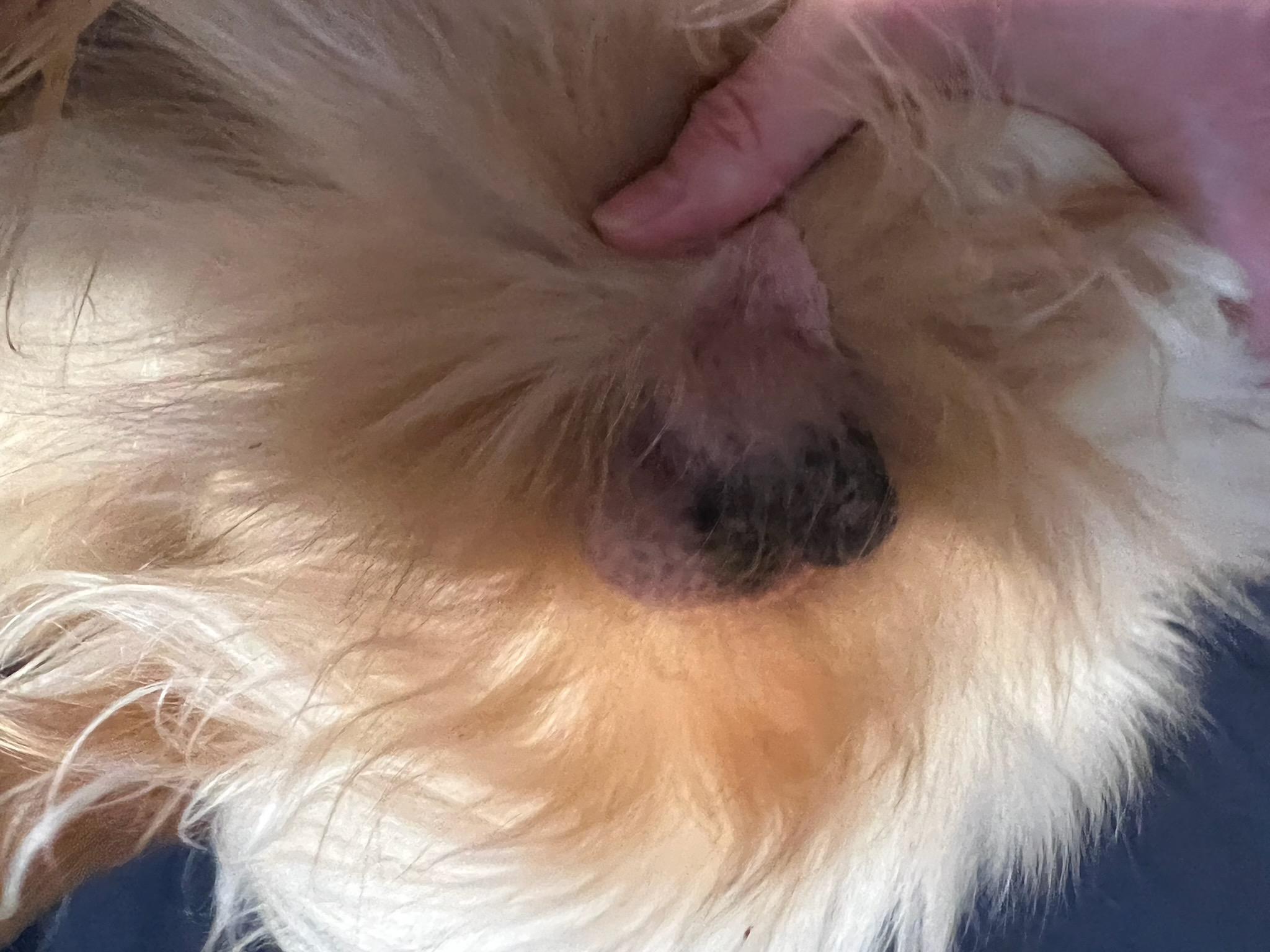Many dog owners may notice their pet’s testicles appearing black and wonder about the significance of this coloration. This concern often arises because they want to understand if it’s a routine variation or indicative of an underlying health issue. This article will explore the reasons behind black-colored dog testicles to clarify and ease owners’ worries. For more insights into pet care, visit Pets Care Insiders.
Normal Pigmentation
- Natural variations in canine coat colors
Canine coat colors exhibit various natural variations influenced by genetics and breed characteristics. These variations can include shades of black, brown, white, and multiple combinations.
- Why certain areas may appear darker
Certain areas of a dog’s body may naturally appear darker due to the concentration of melanin, the pigment responsible for coloration in skin and fur. Factors such as genetics, breed traits, and exposure to sunlight can contribute to the intensity of pigmentation in specific areas like the nose, paw pads, and, in male dogs, the testicles. This darker pigmentation is usually a normal variation, not a cause for concern.
Possible Causes of Black Testicles
A. Genetic Factors
The coloration of a dog’s testicles is a unique trait that can be influenced by genetic factors. These factors include the inheritance of specific pigment genes from their parents. It’s interesting to note that certain breeds may have genetic predispositions to darker pigmentation in various body parts, including the testicles.
B. Hormonal Influence
Testosterone, the primary male sex hormone, plays a natural role in affecting skin pigmentation. During sexual maturity, higher levels of testosterone can lead to increased melanin production and darker pigmentation in the testicles. It’s important to understand that this hormonal influence is a normal part of male development and is generally not a cause for concern.
C. Environmental Factors
While sun exposure can play a role in the pigmentation of a dog’s testicles, it’s important to note that the testicles are typically covered by fur and not directly exposed to sunlight. This means that environmental factors, including sun exposure, may have a minimal effect on testicle pigmentation compared to the more significant influences of genetics and hormones.
Health Considerations
A. Melanomas
- Melanomas are tumors arising from melanocytes, the cells responsible for producing melanin. They can be either benign or malignant.
a. Benign melanomas are harmless growths that do not spread to other body parts.
b. Malignant melanomas, on the other hand, are cancerous and can metastasize to other organs.
- Watch for changes in testicular size, shape, or color, as well as the appearance of lumps or ulcers. Any suspicious changes should prompt immediate veterinary evaluation.
B. Skin Infections or Irritations
- Skin discoloration in the testicular area can also be caused by various skin infections or irritations.
a. Bacterial or fungal infections may lead to inflammation and changes in pigmentation.
b. Allergies, insect bites, or trauma can also result in skin irritation and discoloration.
- It’s essential to monitor for signs of infection, such as redness, swelling, or discharge, and seek veterinary care if any abnormalities are observed.
C. Other Health Conditions
Additionally, various health issues like hormonal imbalances, autoimmune diseases, and nutritional deficiencies can impact skin pigmentation. While less common, these conditions should be considered if additional symptoms are present, such as hair loss, lethargy, or changes in behavior. A thorough veterinary examination can help diagnose and address any underlying health concerns.
Conclusion
Several genetic, hormonal, and environmental factors can affect a dog’s testicular pigmentation, with black coloration frequently occurring naturally. However, it is essential to be vigilant because variations in pigmentation can indicate underlying medical conditions such as hormonal imbalances, skin infections, or melanomas.
Maintaining your dog’s health and well-being requires routine veterinary examinations and quick attention to abnormalities. Consulting a veterinarian if you observe any unsettling changes in your dog’s testicles or general health will guarantee prompt diagnosis and suitable treatment, ensuring your pet has a happy and healthy life.
